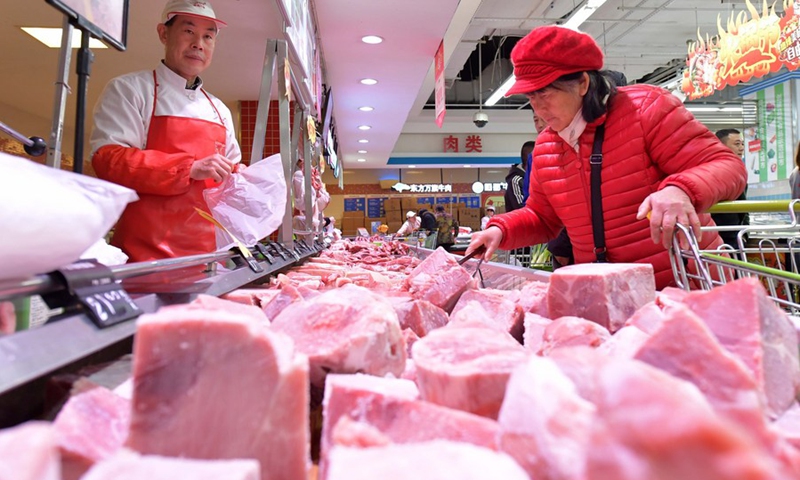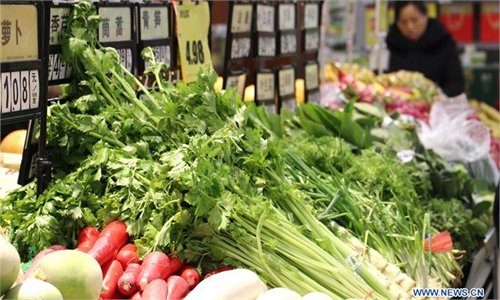
A woman buys pork at a supermarket in Nanchang, east China's Jiangxi Province, Dec. 22, 2019.(Photo: Xinhua)
China's consumer price index (CPI), a main gauge of inflation, fell 0.2 percent in February from a year earlier, paving the way of China's steady economic recovery in the post-COVID era as the price trend kept stable, an analyst said.
The decline of CPI narrowed compared with a 0.3 percent drop in January, due to rises in food prices and transport costs during the Spring Festival season which fell in mid-February, according to the National Bureau of Statistics (NBS) on Wednesday.
As a result of staying put suggestion issued by local governments to reduce mass population mobility during the festival, local entertainment activities drove up film ticket price by 13 percent in February compared with January, according to Dong Lijuan, senior statistician at the NBS.
Pork prices, which have risen four times since 2018 when the African Swine Fever hit provinces in China, dived 14.9 percent year-on-year, dragging the CPI down 0.39 percentage points and showing China's hog production is recovering.
According to the Ministry of Commerce, pork prices in China fell from 47.47 yuan per kilogram in January to 38.59 yuan in February, diving 18.7 percent.
The CPI met with the expectation, indicating China's consumer prices remained stable during the Spring Festival holidays, Liu Xuezhi, a senior macroeconomics expert at the Bank of Communications, told the Global Times on Wednesday.
"It also shows China's economy is recovering gradually with improving demand from the service sector which saw mild rise in prices in February compared with a month before," Liu noted.
Meanwhile, industrial expansion also showed the same trend as seen from the rising price of Producer Price Index (PPI).
PPI, which measures factory-gate prices, rose by 1.7 percent year-on-year in January, 0.8 percent month-on-month, according to NBS.
Dong said the rise is highlighted by increases in smelting and pressing of ferrous and nonferrous metals due to rising domestic demand, together with the global price rising of metal commodities.
"The price rises in upstream manufacturing demonstrated China's industrial demand is speeding up, as economic recovery fuels manufacturing production," Liu said.
Global Times


